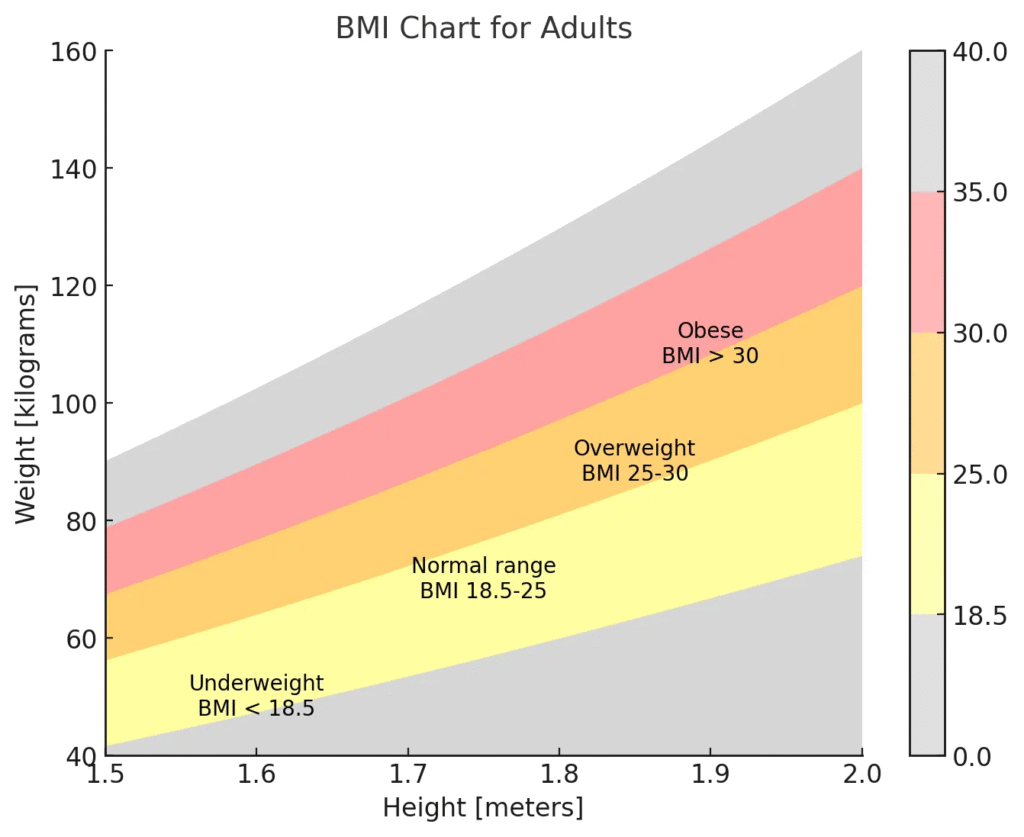Best Healthy Diet Plans for Weight Management: Weight Loss & Weight Gain Guide
Maintaining a healthy weight is one of the most important steps toward long-term health and well-being — whether your goal is to lose weight or gain weight.
A balanced diet and proper nutrition play a key role in achieving your body goals safely.
According to the WHO, 39% of the world’s population is overweight, while 462 million people are underweight, highlighting how common weight management challenges are worldwide .
Choosing the best diet plan for weight loss can help you shed extra fat healthily and sustainably, while the right weight gain diet plan supports muscle growth and overall strength.
From keto diet benefits and Mediterranean diet foods to balanced diet charts and intermittent fasting benefits, this article covers everything you need to know about achieving your ideal weight naturally.
We’ll explore science-backed meal plans, actionable tips, and expert recommendations so you can make informed choices about your health.
Whether you want to burn fat, build muscle, or simply maintain a healthy lifestyle, this complete guide will give you practical steps for long-term success.
Understanding Weight Management:
What is Weight Management?
Weight management refers to maintaining your body weight within a healthy range through a balance of diet, physical activity, and lifestyle habits.
It is not just about weight loss, but also about preventing unhealthy weight gain or helping those who are underweight achieve a healthier body mass.
Proper weight management lowers the risk of high blood pressure, diabetes, heart disease, and hormonal imbalances.
What is BMI and Why It Matters?
Body Mass Index (BMI) is the most common tool used to assess whether your weight is healthy for your height. It is calculated using the formula:
BMI = Weight (kg) ÷ Height (m²)
- Underweight: BMI < 18.5
- Normal / Healthy: 18.5 – 24.9
- Overweight: 25 – 29.9
- Obesity: ≥ 30
Global Weight Management Challenges:
According to WHO:
- 2.5 billion adults worldwide are overweight, including 890 million living with obesity.
- Almost 39% of adults fall in the overweight range, while 462 million are underweight.
- Overweight and obesity rates have tripled globally since 1975.
BMI Chart for Quick Reference:

Best Diet for Weight Loss: Calorie Deficit, Meal Plan & Expert Tips
Calorie Deficit & Portion Control:
The foundation of any weight loss plan is a calorie deficit, meaning you burn more calories than you consume. This can be achieved by:
- Tracking daily calorie intake.
- Practicing portion control — use smaller plates, measure servings.
- Combining balanced nutrition with physical activity for sustainable results.
Best Foods for Weight Loss:
Focus on nutrient-dense, high-protein, and high-fiber foods that keep you full longer.
- Lean Protein: chicken breast, eggs, tofu, fish
- Vegetables: leafy greens, broccoli, carrots, cucumbers
- Whole Grains: oats, brown rice, quinoa
- Healthy Fats: avocado, nuts, olive oil
- Low-Calorie Snacks: yogurt, berries, air-popped popcorn
Diet Plans:
Different diet plans can suit different lifestyles. Here are three of the most effective, science-backed options:
- Balanced Diet Chart:
- 40% fruits & vegetables
- 25% whole grains
- 25% protein
- 10% healthy fats
- 40% fruits & vegetables
- Keto Diet: High fat, moderate protein, very low carb — helps burn fat through ketosis.
- Mediterranean Diet: Emphasizes vegetables, olive oil, fish, and whole grains — proven to reduce heart disease risk and reduce cellulite naturally.
Sample Meal Plan for Weight Loss :
| Meal | Example |
| Breakfast | Scrambled eggs + spinach + 1 slice whole-grain toast |
| Mid-Morning | Greek yogurt + berries |
| Lunch | Grilled chicken salad with olive oil dressing |
| Snack | 10 almonds + cucumber slices |
| Dinner | Grilled fish + steamed broccoli + quinoa |
| Optional | Herbal tea or infused water |
Common Mistakes People Make:
- Skipping meals (slows metabolism)
- Relying only on fad diets (unsustainable)
- Drinking sugary beverages (hidden calories)
- Eating too little protein (loss of muscle mass)
- Not tracking progress (no awareness of calorie intake)
Best Diet for Weight Loss: Calorie Deficit, Meal Plan & Expert Tips
Calorie Surplus & Macronutrients:
For healthy weight gain, you need a calorie surplus, meaning you consume more calories than your body burns. But it’s important to focus on quality calories, not just junk food.
- Carbohydrates (45–55%) – whole grains, rice, oats, starchy vegetables
- Protein (20–30%) – eggs, chicken, fish, paneer, legumes
- Healthy Fats (20–30%) – nuts, seeds, avocado, olive oil
Best Foods for Healthy Weight Gain:
Focus on nutrient-dense, calorie-rich foods that promote muscle growth and overall strength:
- Nuts & Nut Butters: almonds, walnuts, peanut butter
- Dairy Products: milk, cheese, yogurt
- Protein Shakes & Smoothies: with milk, oats, banana, and peanut butter
- Lean Protein: chicken, eggs, salmon
- Calorie-Dense Snacks: granola, trail mix, dark chocolate
- Whole Grains: brown rice, quinoa, whole-wheat pasta
Sample Meal Plan for Weight Gain (H3)
| Meal | Example |
| Breakfast | Whole-grain toast + peanut butter + banana smoothie |
| Mid-Morning | Handful of almonds + glass of milk |
| Lunch | Brown rice + grilled chicken + vegetables cooked in olive oil |
| Snack | Protein shake + granola bar |
| Dinner | Whole-wheat pasta + salmon + sautéed vegetables |
| Bedtime Snack | Greek yogurt + drizzle of honey + walnuts |
Importance of Strength Training with Diet:
Gaining weight through diet alone can lead to fat gain. To ensure a healthy transformation:
- Include strength training exercises (weightlifting, resistance bands, bodyweight training) 3–4 times per week.
- Strength training helps build lean muscle mass instead of just fat.
- Pair workouts with adequate protein intake to support muscle recovery and growth
Lifestyle Tips for Both Goals:
Maintaining a healthy lifestyle is essential, whether your goal is weight loss or healthy weight gain. These simple but effective habits can make a big difference:
Prioritize Sleep & Stress Management:
- Quality sleep supports better metabolism, hormonal balance, and muscle recovery.
Aim for 7–9 hours of sleep daily to regulate hunger hormones like ghrelin and leptin.
Practice stress management techniques like meditation, deep breathing, or yoga to avoid stress-eating and promote mental well-being.
If you struggle with anxiety or emotional eating, consider professional health counseling services to support your mental and physical balance.
Stay Hydrated:
Proper hydration is key to both fat loss and muscle gain.
- Drink 8–10 glasses of water daily to boost metabolism and support digestion.
- Include electrolyte-rich drinks (like coconut water) if you’re training intensely.
- For weight loss: Drink water before meals to control hunger.
- For weight gain: Pair water with nutrient-dense meals to stay hydrated without feeling overly full.
Exercise for Balance: Cardio + Strength Training
- Weight Loss Goal: Prioritize cardio exercises (running, cycling, HIIT) to burn calories.
- Weight Gain Goal: Focus more on strength training (weightlifting, resistance exercises) to build lean muscle.
- Combined Approach: A mix of cardio and strength training is best for overall health.

Practice Mindful Eating:
Mindful eating helps you build a healthy relationship with food:
- Eat slowly and avoid distractions like TV or phone.
- Pay attention to hunger and fullness cues.
- For weight loss: Avoid overeating and choose nutrient-rich foods.
- For weight gain: Add healthy snacks and calorie-dense meals mindfully.
Health Risks of Crash Dieting & Overeating – When to See a Doctor
Before starting any weight loss or weight gain diet plan, it’s important to understand the risks and take proper precautions.
A safe, science-backed approach ensures long-term results without harming your health.
Crash Dieting Dangers:
- Crash diets promise quick results but often lead to nutrient deficiencies, muscle loss, and slow metabolism.
- Health Risks: fatigue, hormonal imbalance, hair loss, weakened immunity.
- Yo-Yo Effect: Rapid weight loss is often followed by quick weight regain.
- Long-Term Damage: Can harm heart health, bone density, and increase cancer risk.
Overeating Risks:
- Uncontrolled overeating — even of healthy foods — can lead to excess fat gain, obesity, and metabolic issues.
- Weight Gain Side Effects: higher risk of diabetes, heart disease, and fatty liver.
- Digestive Problems: bloating, acid reflux, sluggish digestion.
- Emotional Eating: Can be triggered by stress, boredom, or poor sleep.
When to Consult a Doctor or Nutritionist:
Always seek professional guidance if:
- You have a medical condition (diabetes, PCOS, thyroid disorder).
- You’re underweight or overweight and not sure where to start.
- You experience symptoms like dizziness, fatigue, or irregular periods during dieting.
- You’re planning to follow restrictive diets (like keto, intermittent fasting) long-term.
Also, consider checking essential medical equipment for health monitoring to track your health metrics safely at home.
Nutritionist-Recommended Diet Plans for Healthy Weight Management
Getting advice from certified professionals ensures your weight loss or weight gain journey is safe and effective. Here are expert-backed tips you can follow:
Tips from Nutritionists & Dietitians:
- Set Realistic Goals: Aim for 0.5–1 kg weight change per week for healthy progress.
- Follow a Personalized Plan: Choose a diet plan for weight loss or weight gain based on your age, gender, activity level, and health conditions.
- Track Progress: Use food journals or apps to monitor calories, protein intake, and weight changes.
- Don’t Skip Meals: Consistency is key — skipping meals can slow metabolism or reduce muscle growth.
- Pair Diet with Exercise: Combine strength training with proper nutrition for the best results
References from Trusted Health Authorities:
- WHO (World Health Organization): Recommends maintaining a healthy BMI (18.5–24.9) to prevent chronic diseases like diabetes, heart disease, and cervical cancer.
- Mayo Clinic: Suggests gradual calorie adjustments and balanced macronutrient intake to avoid health risks during dieting.
- NIH (National Institutes of Health): Emphasizes combining diet, exercise, and behavioral changes for sustainable weight management.
Why Expert Guidance Matters?
- Prevents nutrient deficiencies during calorie restriction
- Reduces risk of overeating or undereating
- Helps identify medical conditions (thyroid issues, hormonal imbalances) that affect weight
- Ensures long-term, sustainable results instead of temporary fixes
FAQ’s:
What is the best diet plan for weight loss?
The best diet plan for weight loss is one that creates a calorie deficit while providing all essential nutrients. Balanced diet charts, Mediterranean diet, or calorie-controlled keto diet are great science-backed options.
How can I healthily gain weight?
To gain weight, focus on a calorie surplus by eating nutrient-dense foods like nuts, dairy, lean proteins, and whole grains, along with strength training to build muscle mass.
Is intermittent fasting safe for weight loss?
Yes, intermittent fasting can be safe for most healthy adults, but it should be done gradually. Consult a doctor if you have diabetes, low blood pressure, or hormonal issues.
How much weight can I lose or gain in a month?
A healthy goal is 2–4 kg per month, depending on whether you are losing or gaining weight. Rapid changes may harm metabolism or lead to fat gain instead of muscle gain.
Which exercises are best for weight management?
For weight loss, cardio + HIIT workouts are highly effective.
For weight gain, strength training (weight lifting, resistance exercises) is essential to build muscle.
Conclusion:
Achieving a healthy weight — whether through weight loss or weight gain — is not about quick fixes but about building a sustainable lifestyle.
By focusing on a balanced diet chart, creating a calorie deficit for fat loss or a calorie surplus for muscle gain, and choosing nutrient-dense foods like lean proteins, whole grains, and healthy fats, you can transform your health safely.
Pairing the right diet plan with regular exercise (cardio for fat loss, strength training for muscle gain), proper hydration, and quality sleep ensures long-term results.
Avoid risky practices like crash dieting or uncontrolled overeating, and consult a nutritionist or doctor if you have medical conditions or struggle with your progress.

